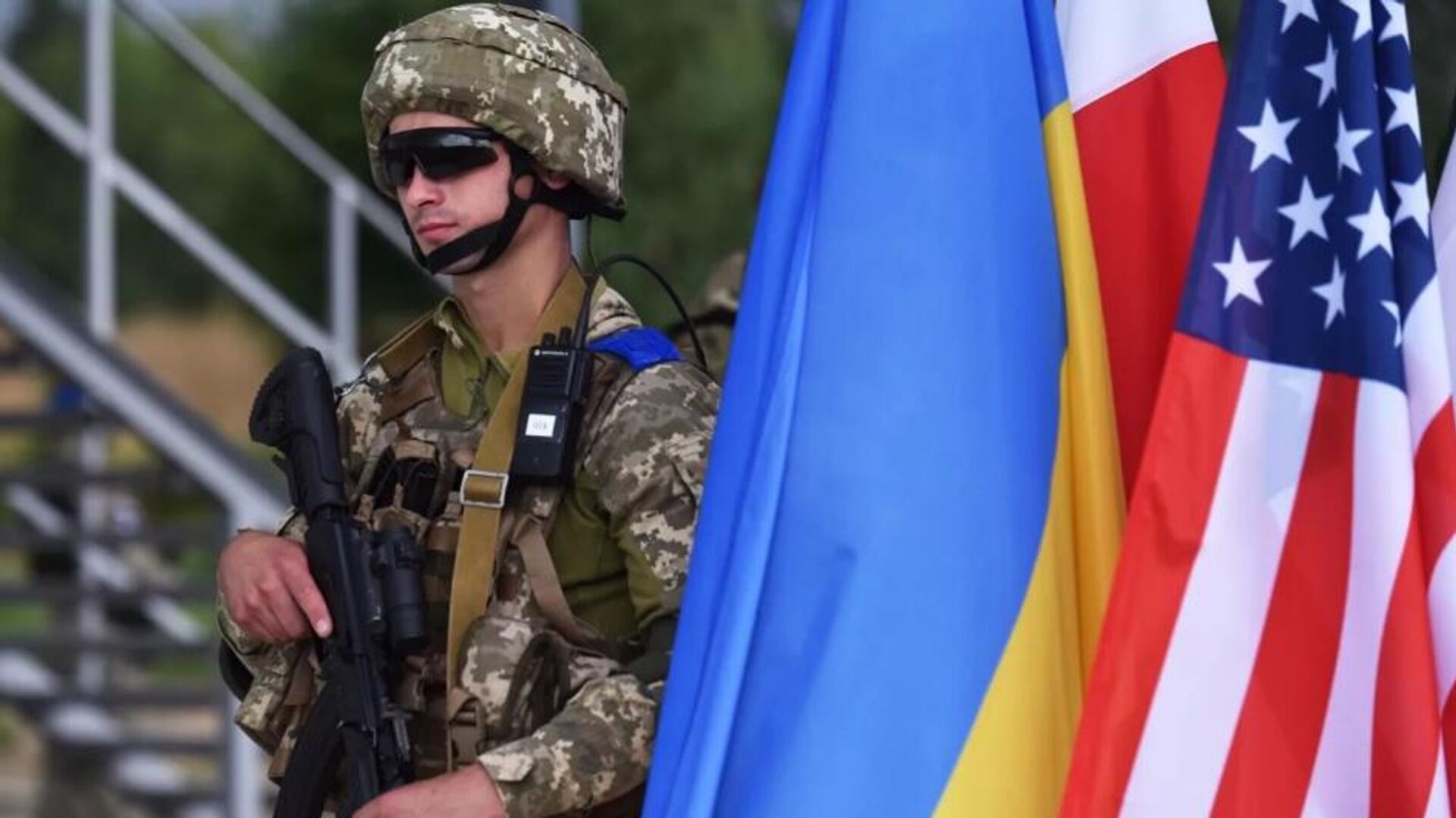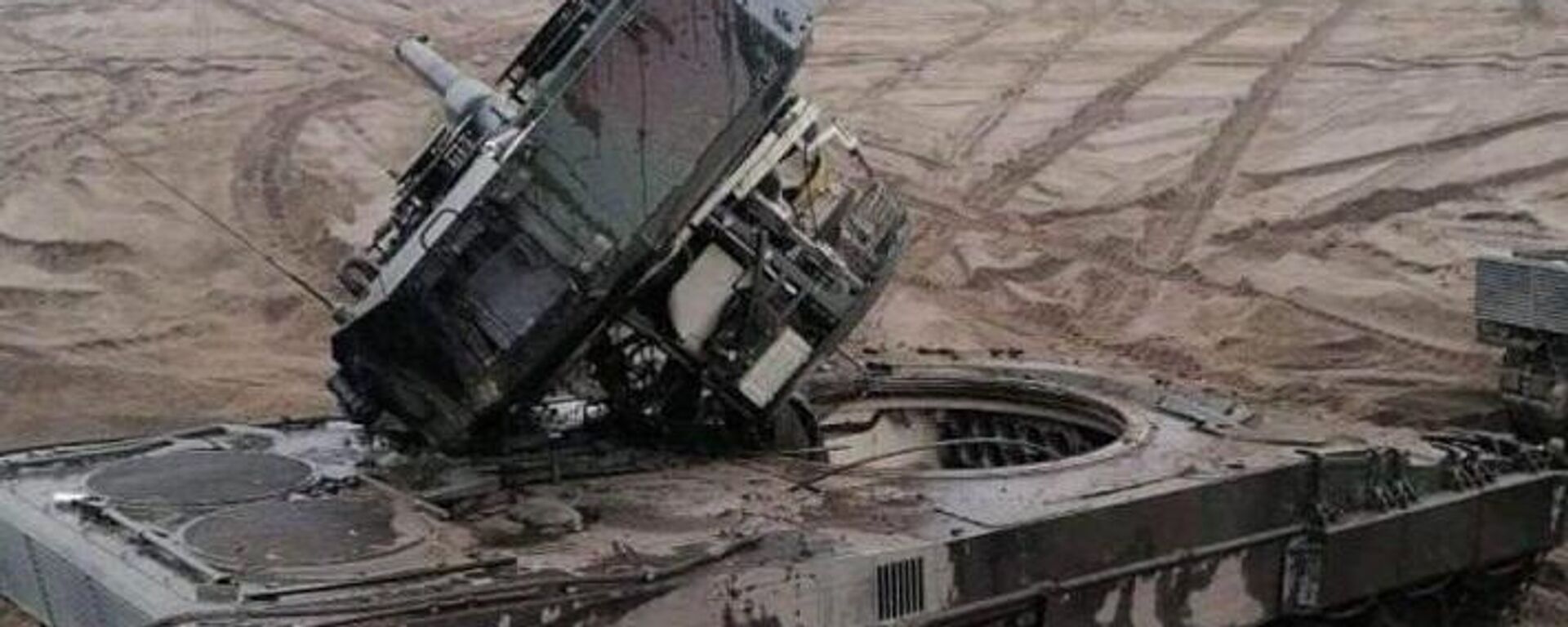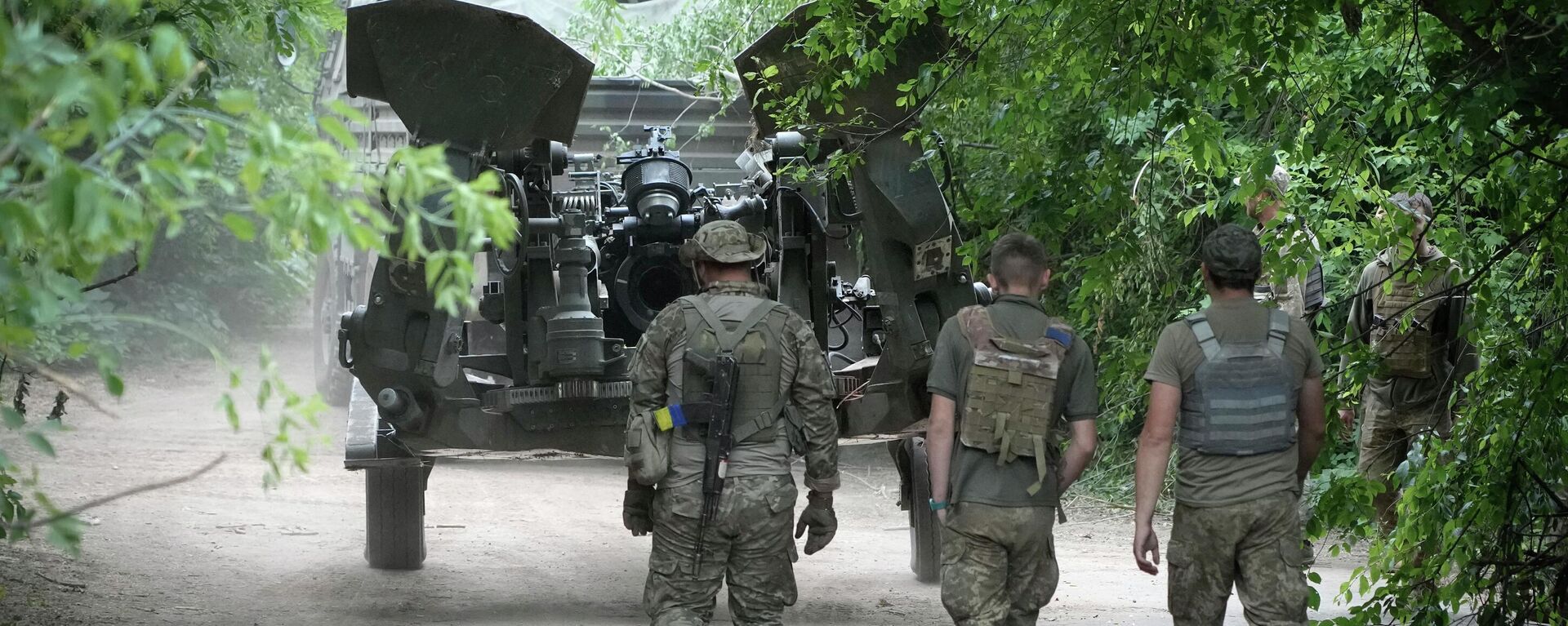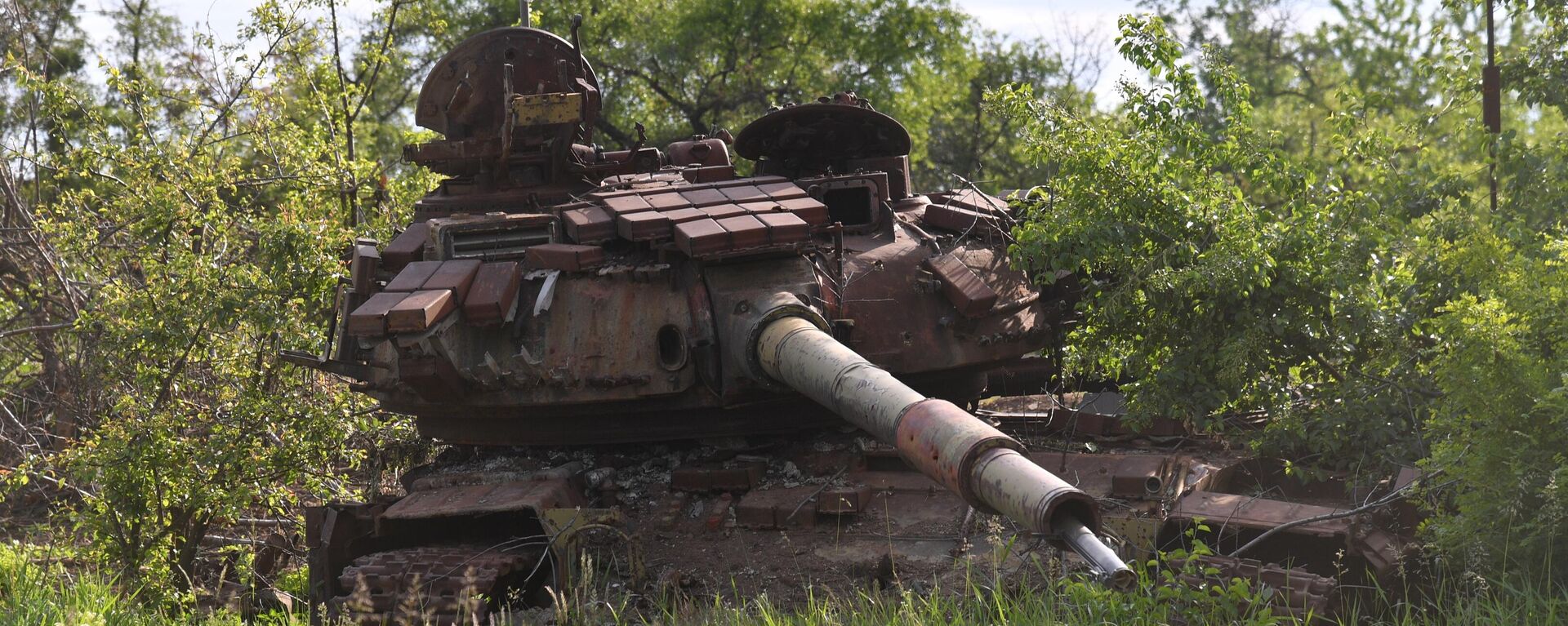Ukrainians Trashed Insufficient US Military Tactics Amid Failed Counteroffensive

© Sputnik
Subscribe
The Ukrainian Armed Forces has reverted from the US tactics to their previous strategy, as Ukraine Western-trained units got bogged down, per the US press.
Ukraine's decision to change tactics has raised questions about the quality of NATO training and war planning, as well as the West's massive spending on the much-anticipated offensive, according to the US media. It also showed that NATO's hopes for a Ukrainian breakthrough have been dashed.
Judging from the June offensive, the US military concept envisaged the extensive use of armored vehicles, which were supposed to break through the front; after that, units on light armored vehicles should have joined the fight, moved forward, occupied and expanded territorial gains, according to Boris Rozhin, a military expert with the Center for Military-Political Journalism, an independent Russian military affairs think tank.
In practice, it turned out that the Ukrainian military had to deal not only with Russia's minefields, fortifications, and troops, but also faced heavy losses, poor interaction between their units, difficulties associated with operating Western equipment, and a lack of competent Ukrainian officers, according to the expert.
"Operations of this magnitude have not been carried out anywhere for a very long time," Rozhin told Sputnik. "Therefore, there are objective problems, because the Americans thought that their express-training of [Ukrainian] officers in accordance with Western standards would quickly bear fruit, but in practice it turned out that this training was not enough."
As a result, Ukrainian veterans who had extensive combat experience have proven to be more effective and resilient than "fresh" units trained and equipped by NATO, per Rozhin.
"The 47th brigade of the Armed Forces of Ukraine – which was being trained by the West, which was fully armed by the West – was advancing in the Rabotino and the Pyatikhatki regions. It suffered the most severe losses," Rozhin said, adding that this and other NATO-trained Ukrainian brigades have become an example of insufficient management.
"At the same time, some old brigades like the 9th, 20th or 95th and 3rd brigades include many war veterans and their quality is better," the expert continued. "Due to a 'backbone' [of veterans] who transfer combat experience, they operate more effectively than NATO-trained brigades."
What's Behind Insufficient NATO Training?
The compressed training schedule is one aspect of it, echoed Earl Rasmussen, a retired lieutenant colonel with over 20 years in the US Army and an international consultant. The other problem was that the Ukrainian military received a variety of NATO-grade equipment.
"You've got German tanks, you've got British tanks, you've got American tanks. And all these systems are very complex. The basic introductory is a month, and typically a year or two years for training and getting ready to fight in that type of a maneuver situation. It’s very complex equipment, very complex maneuvers, not well-prepared based on the conditions that the Ukrainians have been put into," Rasmussen told Sputnik.
"And then you've got these people being trained in different areas, so you've got different training approaches teaching combat arms or whatever, and combined arms tactics as well," he added.
© Sputnik
To complicate matters further, the Ukrainian military has a serious lack of manpower, especially when it comes to experienced lieutenants, according to Sputnik's interlocutors. As a result, the Kiev regime is taking conscripts from 16 to 65 off the street and throwing them into a wartime situation, often at the front, per Rasmussen. He added that manpower is also being replenished with mercenaries from different countries. Under these circumstances, the Ukrainian Armed Forces cannot boast military uniformity and associated efficiency, according to the experts.
All these shortcomings could have somehow been compensated for if the Ukrainian military had air superiority, Rasmussen noted. However, it's Russia who controls the sky, he added.
"You don't have air superiority; you've got minefields you have to negotiate through. I mean, you're just like a target practice. That's what it ends up being. The other aspect is you have huge numbers of newly reclaimed troops, very few with experience and combat experience," the retired lieutenant colonel stressed, dubbing the Ukrainian counteroffensive a "suicide mission."
© Sputnik
Ukrainian Military Has Repeatedly Changed Tactics
How did the Ukrainian counteroffensive unfold? Rozhin shed light on the Kiev regime's attempts to make progress on the ground.
"Since the June 14 offensive, they periodically tried to vary tactics, because they faced heavy losses, little progress," the Russian expert explained. "Accordingly, this suggests that the tactic did not work. Initially, especially in June, the enemy tried to ram our defenses with large masses of armored vehicles. They bogged down while dealing with [Russian] defenses, sustained heavy losses, and failed to advance. Because of that, the counteroffensive stalled."
Rozhin continued to say that after that, the Ukrainians switched to tactics of operating in small groups with the support of artillery. This reduced Ukraine's losses in terms of Western equipment, but increased its manpower losses. Eventually, this tactic did not yield any great progress either, because, in fact, it was focused on the movement of infantry, mostly by foot. According to the expert, no deep breakthrough can be achieved by this method, let alone a large-scale offensive in the direction of Melitopol, Berdyansk, or Mariupol.
"Accordingly, by August, this tactic of infantry attacks has not justified itself either," Rozhin said. "[The Ukrainian military] has now tried to return to the tactics of the massive use of armored vehicles. This led to the increased losses of armored vehicles while reducing losses in the infantry. But again, one cannot say that [Ukraine's] aims were achieved. Therefore, they are now trying to justify their failure in every possible way by saying 'We were not going to advance quickly from the very beginning,' but they refer to the resistance of the Russian troops. This suggests that [Russia's] command is well prepared for thwarting the enemy tactics. Moreover, even when they change tactics, [Russian] troops are ready for these changes, and, thus, the enemy cannot achieve operational results."
Despite using Western equipment, foreign mercenaries, and NATO's assistance, the Ukrainian Armed Forces have proven incapable of accomplishing their counteroffensive tasks, Rozhin noted. Accordingly, this situation has caused panic in the West, as the US and their NATO allies "clearly expected something else this summer," the expert concluded.




